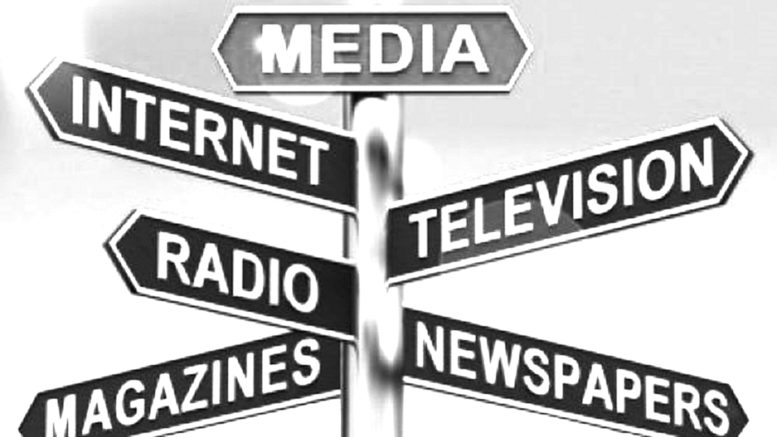Many people, myself included, who are fed up with the BBC’s bias and the Corporation’s willingness to push unchallenged certain political, cultural and social narratives onto the British people were delighted to watch Twitter CEO Elon Musk hand BBC journalist James Clayton’s arse on a plate during an interview. I delighted in seeing how Mr Musk made mincemeat of Mr Clayton’s lack of preparedness and the fact that he could not give examples of the ‘hate speech’ that he claimed was to be found on Mr Musk’s Twitter platform.
James Clayton and his behaviour during the interview with Mr Musk in my view summed up much of what is wrong with the BBC. Mr Clayton’s arrogance and expectation that the words ‘BBC’ would count for a lot in his interview and carry the day is also the BBC’s arrogance and self-entitlement. Mr Clayton went into the interview not just woefully unprepared for this encounter with Mr Musk but also unable to access vital information that could have advanced the interview for example when Mr Musk asked Mr Clayton for examples of so-called ‘hate speech’ on Twitter and he could not give any. Mr Clayton gave the impression to me that he believed that if he said something as a BBC representative such as an allegation of ‘hate speech’ then because of the BBC’s previously good reputation as a broadcaster then these allegations did not need to be backed up with evidence.
A writer for The Critic magazine, Fred Skulthorp, who is a Reithian who believes that the BBC’s mission should go back to being one where the Corporation ‘educates, informs and entertains’, has pointed out that the BBC has ‘dumbed down’ and ‘haemorrhaged’ authority and become untrustworthy. Sadly he’s very correct about this. I no longer trust the BBC for anything other than weather forecasts and even then I take them with a pinch of salt.
Mr Skulthorp said:
Crap interviews happen all the time, but Clayton’s car crash with Musk was iconic. With his dithering, half baked responses and sixth form debate club energy, this was the new BBC on display.
The online news desk runs endless stories on trivial nonsense, fails to do basic journalistic due diligence, castigates itself with dumbing down strategies for an audience it doesn’t reach or understand. In the last half decade, it has haemorrhaged authority to the point where the public broadcaster is now trusted by less than half the population.
I can well understand Mr Skulthorp’s desire to not see the British broadcasting environment becoming like that of the United States, where every news outlet has an obvious bias, but the BBC is no longer impartial in any meaningful way. Therefore we already have partisan bias in news broadcasting with the BBC as by far the worst offender in this area. With the main established broadcasters such as the BBC and Sky now openly and consistently pushing the liberal/left lines and talking points US style partisanship is already here but unlike the US broadcast system, there is very little to counter this bias. Although TalkTV and GB News are picking up support from those unhappy with the bias of the BBC, the BBC is still the elephant in the room when it comes to news broadcasting and that gives it an outsize power and outsize influence over UK news broadcasting.
But how did we get to a position where the BBC, an organisation that was once an exemplar of decent broadcast journalism, becoming something like Huffington Post site or the Guardian newspaper? Mr Skulthorp seems to believe that many of the BBC’s news problems are down to how the BBC has abandoned proper journalism and proper journalists who worked their way up through local media and now employs many who grew up with online reporting and the idea of chasing clicks above all else. Mr Skullthorp also has a justifiable go at Marianna Spring the BBC’s ‘disinformation reporter’ who he calls a ‘post journalist’ whose primary goal is clicks and engagement rather than reporting the truth.
Mr Skulthorp added:
As with all big news organisations, there are good people and bad people at the BBC. The problem is increasingly it’s the latter category that seems to be shaping its future. Maybe it’s a generational thing — a vibe shift as they say. If the BBC wants to withstand the present storm of mistrust, then it needs to start thinking seriously about the style of journalism it’s projecting to the world. Put simply, it’s starting to seriously damage its rep.
The manner in which Musk was pursued was a prime example of this. It was a deliberate, eye grabbing spectacle that tried to beat him at his own game via Tweets, Twitter polls and an appeal to the emotional hive of Twitter. It was pushed by Spring, who increasingly seems to be the poster girl of the corporation’s future. The archetypal post journalist who deals in attention and engagement, she dabbles mainly in modern day morality tales about what happens when you stray from the flock.
I agree with Mr Skulthorp in that the BBC’s current journalistic path is damaging the Corporation’s reputation. If that well earned but sadly almost completely squandered reputation can be recovered is difficult to say, but if it is then it will need the BBC to return to having proper journalists in their employ, rather than what they seem to have at present, which is political activists.






For a start we must be aware that left wingers regard the BBC as too right wing and left wingers regard it as too right wing! Unless someone is a genuine centrist we interpret their signs of bias differently.
Going on to what is more important, what is good journalism? I’d say to select the most relevant and important news stories, and to report them as truthfully as possible adding in any background as education for anyone who has not been following the whole story and needs it.
I may not be correct but readers of this blog can decide how far the BBC lives up to my view, or any other media outlet.
All outlets have their own editorial line, I don’t believe that it is possible to have things any other way. But generally it’s possible, at least in the print news sector, to buy the newspaper that best fits your world view or which covers the stories that you are most interested in. That’s not the case with the BBC. It should, because it is funded by all of us, be as impartial as humanly possible, but it plainly is not. However I agree with Ed P that socialists see the BBC as ‘right wing’ even though there is extremely little evidence to show that and plenty of evidence that the BBC veers left.
Marian is correct – leftists see it as right, and vice versa. (I have a socialist friend who considers the BBC as, “captured by the right wing”. No examples I offer of their appalling leftist bias and constant lies about climate, etc. shake her opinion, as she knows she’s correct! And she still ‘reads’ the Grauniad, a disgrace and a traitor these days to the proper journalism it once supported.) Still, their investments in slavery have kept it going and paid the wages of those who ‘write’ their facile rubbish.
Sky News Australia is refreshingly separate from Sky News UK and worth a look. cf BBC, chalk & cheese.
Re Sky UK and Sky Aus. They have different owners and that makes a massive amount of difference.
The whole history of communications is so interesting. First we got the invention of the printing press in late Middle Ages but it took several hundred years until an extension of literacy and further advances in print technology produced mass consumption of the written word in the form of printed readily available literature and newspapers. Then sometime in the 1890s film making was invented and then in the 1920s broadcasting on airwaves which changed everything came along. We are in the third wave now with the invention of the internet.
I realise that the public or private ownership of the airwaves has evolved in different ways in different countries. In the UK the BBC took a massive step to control the newly opened airwaves as a public monopoly and to outlaw any commercial interests from the new discovery.
The problem I think is that our BBC with democratic accountability was then seen an a fair arbritrator of news and opinions from varying sources as an educational resource to interpret the news, and it is still trusted now to some extent to that purpose.
There are questions about supporting a public broadcaster in this role, but I also see the BBC as cultural. I like listening to all types of music including some classical and especially Jazz Record Requests at 16.00 hrs on R3 on Sunday afternoons. If the BBC was defunded for political reasons I would no longer have this.